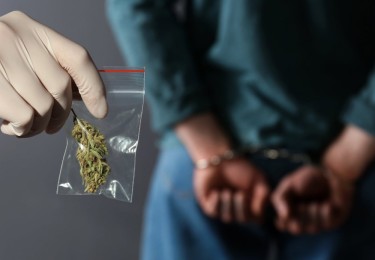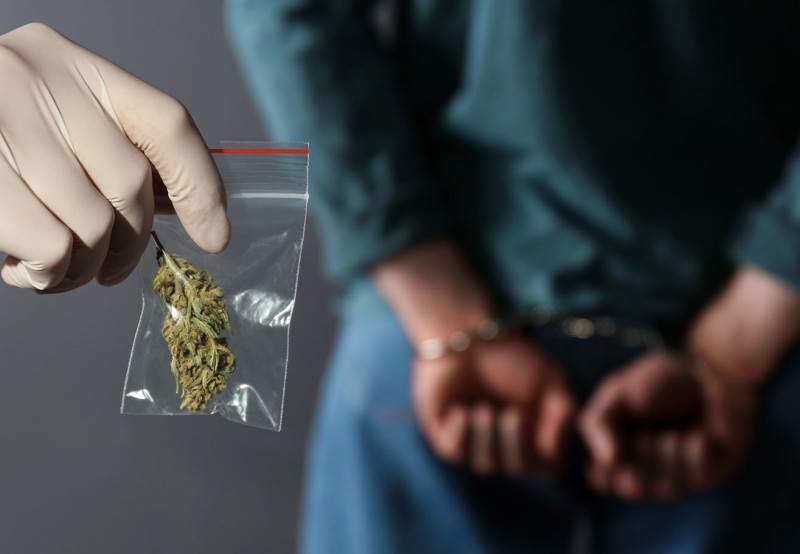
The Drug War Machine Trucks on
As I sit here, rolling up my morning joint, I can't help but marvel at the paradoxical state of cannabis in America. On one hand, we've witnessed a green wave of progress sweep across the nation. From the rocky coasts of Maine to the sun-kissed beaches of California, the majority of states have embraced some form of marijuana reform. Medical programs flourish, recreational markets boom, and politicians who once demonized the plant now champion its potential. It's a far cry from the "Reefer Madness" days, and for a moment, it almost feels like victory.
But as the smoke clears, a sobering reality comes into focus. Despite this unprecedented progress, the gears of the Drug War Machine continue to grind, harvesting individual souls with ruthless efficiency. The plant that brings relief to millions, sparks creativity, and offers a safer alternative to alcohol is still treated as a menace in many jurisdictions. It's as if we're living in two Americas: one where cannabis is celebrated and another where it's criminalized.
The cost of this dichotomy isn't just measured in arrest statistics or wasted tax dollars—though those numbers are staggering. It's measured in shattered lives, broken families, and communities torn apart. All for a plant that's arguably the safest among the pantheon of substances available to the average human being. The irony is palpable: in one state, you can walk into a sleek dispensary and choose from a cornucopia of cannabis products. Cross an invisible border, and you might find yourself in handcuffs for possessing the very same plant.
In today's article, we're going to dive deep into the FBI's crime statistics for 2023. These numbers tell a tale of two Americas, highlighting that despite positive moves by individual states, the specter of prohibition still looms large. Until we see a complete national—and dare I say, international—shift in cannabis policy, people will continue to suffer under the weight of outdated and unjust laws. So, let's peel back the layers of progress and examine the work that still needs to be done. The Drug War Machine may be sputtering, but it's far from dead.
What the FBI Crime Statistics Show Us About the Drug War Machine
Let's dive into the cold, hard numbers, shall we?
According to the FBI's latest Crime in the United States report, a staggering 220,000 marijuana-related arrests were made in 2023. Brace yourselves for this kicker: the majority of these arrests were for simple possession.
That's right, folks. We're not talking about kingpins or violent offenders. We're talking about average Joes and Janes whose crime was having a plant in their pocket.
Now, let's break that down. 220,000 arrests in a year means about 602 arrests per day. That's 602 lives potentially ruined, 602 families stressed, and 602 communities impacted—every single day. And for what? A substance that's legal in nearly half the country.
It's crucial to note that these arrests aren't evenly distributed. In states where cannabis is legal, these statistics don't hold water. The bulk of these arrests are happening in states clinging to outdated models of prohibition like a drowning man to a life raft. The irony? That life raft is actually an anchor, dragging entire communities down.
The Drug War Machine, despite its sputtering and wheezing, continues to execute its programming with the precision of a well-oiled apparatus of oppression. But let's ask ourselves: what has this achieved? Has it made our communities safer? Has it reduced drug use? Has it improved public health? The resounding answer to all of these questions is a big, fat "No."
Instead, this relentless grind has torn families apart, destabilized communities, and created hardships that echo through generations. Prohibitionists often parrot the line that drugs rip communities apart, but let's be real: it's the enforcement of these draconian policies that does the real damage. Parents labeled as "dangerous substance abusers" are ripped away from their children. People with arrest records struggle to find jobs, housing, and education opportunities.
This cycle of marginalization doesn't reduce crime—it breeds it.
This is the madness of our current state of affairs, and I hate to be the bearer of bad news, but I don't foresee any major changes on the horizon, even with a new president. Why? Because the War Machine is adaptable. It aims to embed itself within legalization efforts. Just look at the push for Schedule III rescheduling—a move that would maintain federal control while giving the illusion of progress.
The truth is, many of us are now in cannabis-friendly places, enjoying the fruits of reform. But our brothers and sisters stuck in prohibition land are still feeling the blunt force of this failed policy. It's a tale of two Americas, and the contrast is stark and unjust.
This must change. We can't rest on our laurels just because some of us can walk into a dispensary without fear. Every arrest is a tragedy, every life derailed is a failure of our system. The Drug War Machine may be running out of fuel, but it's still claiming victims. It's up to us—the cannabis community, advocates, and compassionate citizens—to throw a wrench in its gears once and for all. The fight isn't over until the last cannabis prisoner is free and the last arrest is made.
The Sticky Bottom Line
Alright, let's take a moment to roll up the good with the bad, shall we? The good news—if you can call it that—is that 220,000 cannabis arrests in 2023 is a far cry from the prohibition peak of 2009 when we saw nearly a million souls caught in the Drug War's meat grinder. It's a bit like celebrating that your house is only partially on fire instead of fully engulfed in flames. Progress? Sure. But let's not break out the champagne just yet.
The bad news? 220,000 arrests is still an atrocious, jaw-dropping, mind-bogglingly absurd number. We're talking about more people than the entire population of Des Moines, Iowa, facing life-altering consequences for a plant. A plant, I might add, that categorically doesn't qualify for Schedule I status. Hell, cannabis shouldn't even be on the Controlled Substances Act at all. And you know what? Let's take it a step further—the CSA itself shouldn't exist in the first place. It's a relic of a bygone era, a fossil of failed policies that we're dragging into the 21st century like a caveman with a pet dinosaur.
Despite all the smoke and mirrors of progress, the harsh truth remains: the Drug War Machine continues to oppress millions. It's not solving any actual problems; it's creating them. This isn't a war on drugs; it's a war on people, on communities, on common sense itself. The government wields this oppressive tool like a drunk swinging a sledgehammer in a china shop—causing maximum damage with minimum effectiveness.
Now, I know what you're thinking. "But Reginald, what about the next presidential cycle? Surely one of these candidates will fix this mess!" Oh, my sweet summer children. Call me a cynic (go ahead, I've been called worse), but I don't trust any of them as far as I could throw them after a dab session. They're all out there, spouting promises and platitudes, but at the end of the day, they're just oiling up the same rusty machine that keeps the average Jane and Joe down.
I wish I could tell you exactly how this anti-drug crusade is going to end. I wish I had a crystal ball (or a particularly prophetic strain of cannabis) that could show us the way out of this mess. But what I do know is this: every year we sit on our hands and "wait and see" what happens, hundreds of thousands of lives are negatively affected. Society isn't better for it. We're not safer, healthier, or more prosperous. We're just... stuck.
So here's my proposal, as radical as it might sound to some: let's make common sense rule once more. Let's end the Controlled Substances Act entirely. Rip it up, set it on fire, use it as rolling paper—I don't care. But let's be done with it. Then, let's sit down like rational adults and completely redraft our relationship with drugs of all calibers.
Imagine a world where we treat drug use as a health issue rather than a criminal one. Where we educate rather than incarcerate. Where we help rather than hurt. It's not a pipe dream—it's a necessity. Because the alternative is more of the same: more arrests, more lives ruined, more communities torn apart.
The sticky bottom line is this: we've tried prohibition, and it's failed spectacularly. It's time for a new approach. It's time to end the war not just on cannabis, but on all drugs. It's time to build a society based on compassion, understanding, and yes, a little bit of common sense. Because if we don't, the only thing that's going to be truly controlled is us.
TIME TO LEGALIZE, READ ON...
KAMALA HARRIS SAYS WE NEED TO LEGALIZE WEED AND DECRIMINALIZE IT!







